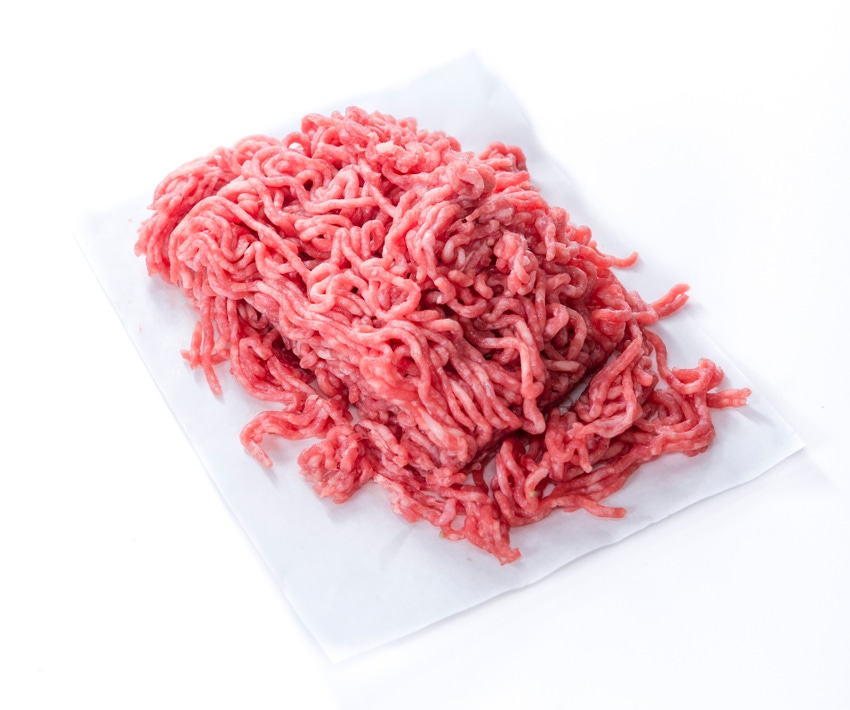FSIS links consumption of Central Valley Meat products to outbreak affecting 10 people in six states.

The Centers for Disease Control & Prevention (CDC), public health and regulatory officials in several states and the U.S. Department of Agriculture’s Food Safety & Inspection Service (FSIS) are investigating a multistate outbreak of Salmonella Dublin infections linked to ground beef, with 10 cases reported in six states resulting in one death.
In light of the latest food safety concerns, Rep. Rosa DeLauro (D., Conn.) and Sen. Kirsten Gillibrand (D., N.Y.) sent a letter to Agriculture Secretary Sonny Perdue urging transparency in the testing data being gathered regarding the multistate salmonella outbreak linked to ground beef.
Central Valley Meat Co. Inc., a Hanford, Cal., establishment, is recalling approximately 34,222 lb. of ground beef products that may be contaminated with S. Dublin, FSIS reported in a statement on Nov. 15. FSIS was notified of an investigation of S. Dublin illnesses on Sept. 9, 2019. Working in conjunction with CDC and state and local public health partners, FSIS determined that there is a link between ground beef products from Central Valley Meat and this illness cluster.
“The traceback investigation indicated that a case-patient consumed ground beef produced by Central Valley Meat Co. Inc. Based on epidemiological investigation, 10 case-patients have been identified in six states with illness onset dates ranging from Aug. 8, 2019, to Sept. 22, 2019,” FSIS stated. No antibiotic resistance was identified in this outbreak strain of S. Dublin.
DeLauro and Gillibrand asked Perdue to adopt a policy of greater transparency with respect to the microbiological testing data FSIS collects from slaughter and processing establishments. “By disclosing this data, USDA will foster market-based incentives for safer meat and poultry,” the lawmakers wrote.
“Data on samples collected by FSIS, generated using whole-genome sequencing technology, would allow companies, government researchers and members of the scientific community to identify links between pathogenic strains found in samples from FSIS-regulated establishments and those found in samples from patients with confirmed cases of foodborne illness,” DeLauro and Gillibrand continued. “Those links provide actionable information for companies to reduce food safety risk. USDA has limited authority to require [food safety] interventions, but by sharing accurate information about what its testing reveals, the agency has had success in creating incentives for improved food safety.”
The letter noted that the outbreak is not an isolated incident. Last year, two outbreaks — one linked to Salmonella Reading in raw turkey and another linked to antibiotic-resistant Salmonella Infantis in raw chicken — involved outbreak strains that were found in dozens of slaughter and processing establishments. In fact, CDC officials recently disclosed that the outbreak strain of S. Infantis, which caused 129 reported cases and at least one death, has now been found in several turkey slaughter and processing establishments.
“Whether an infected breeder flock, a contaminated feed mill or some other common source is to blame for spreading these outbreak strains so far and wide remains unclear. Regardless, the outbreaks demonstrate that food safety interventions are needed earlier in the production chain, before animals arrive at the slaughterhouse,” DeLauro and Gillibrand said.
USDA has limited authority to require those interventions, but by sharing accurate information about what its testing reveals, the agency has had success in creating incentives for improved food safety, DeLauro and Gillibrand stated. For example, since the George W. Bush Administration, FSIS has posted online the identities of poultry establishments failing to meet salmonella performance standards. USDA’s Economic Research Service (ERS) has found a “strong correlation” between the availability of this information and poultry processors’ success in meeting food safety goals.
According to ERS, posting performance data on the website provides a “tool for encouraging compliance with food safety” that does not “require costly regulatory oversight and labor devoted to compliance” but, rather, creates a market where “buyers determine the appropriate level of food safety and costs.” Disclosing whole-genome sequencing data on FSIS samples would similarly promote a better-functioning market, the letter noted.
Already, FSIS shares information about its microbiological sampling with companies and the public, and the agency could add whole-genome sequencing data to those disclosures with minimal disruption, DeLauro and Gillibrand stated.
“FSIS officials have suggested that they have not disclosed this genetic data because doing so could cause public confusion or require public health authorities to focus their attention on misleading claims. We are not convinced that any such ill effects would outweigh the benefits of giving industry relevant, accurate and timely information about contamination in food processing facilities and creating market-based incentives for better food safety control,” the letter added.
About the Author(s)
You May Also Like




.png?width=300&auto=webp&quality=80&disable=upscale)
